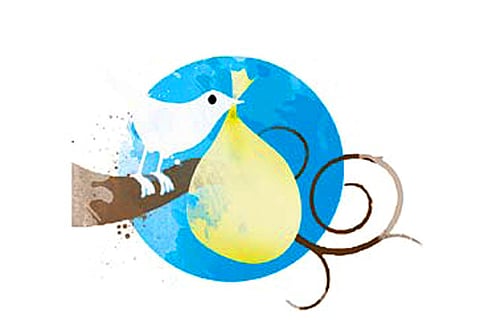Beware of the pitfalls of Twitter
As the sacking of a CNN journalist for a tweet on an ayatollah's death has shown, it's hard to convey nuance in 140 characters

When Grand Ayatollah Syed Mohammad Hussain Fadlallah died in Lebanon on Sunday, tributes poured in from Lebanese politicians and religious leaders of almost every hue. There were official condolences, too, from further afield: from Bahrain, Jordan, Iran, Iraq, Kuwait, Qatar, Saudi Arabia, Turkey, Yemen, and from the Arab League and the Organisation of the Islamic Conference.
Britain's ambassador to Lebanon, Frances Guy, praised him in her blog, describing the ayatollah as a "much admired leader of many Shiite Muslims throughout the world".
She continued:
"When you visited him you could be sure of a real debate, a respectful argument and you knew you would leave his presence feeling a better person. That for me is the real effect of a true man of religion; leaving an impact on everyone he meets, no matter what their faith". I remember well when I was nominated ambassador to Beirut, a Muslim acquaintance sought me out to tell me how lucky I was because I would get a chance to meet Shaikh Fadlallah. Truly he was right. "If I was sad to hear the news [of his death] I know other people's lives will be truly blighted. The world needs more men like him willing to reach out across faiths, acknowledging the reality of the modern world and daring to confront old constraints. May he rest in peace."
In the midst of all this, Octavia Nasr, CNN's senior editor of Middle East affairs, posted a brief comment on Twitter.
It said:
"Sad to hear of the passing of Syed Mohammad Hussain Fadlallah ... One of Hezbollah's giants I respect a lot."
Had she said: "Good riddance to Fadlallah — the world is better off without him", I can't imagine there would have been any fuss. But, as it was, her tweet soon had pro-Israel activists up in arms and calling for her to be sacked. Wednesday night, CNN duly obliged, saying that her credibility had been "compromised".
Fadlallah, as the BBC delicately puts it, left behind a mixed legacy: "For many in the West, [his] name was irrevocably linked with acts of violence against the American presence in Lebanon in the early 1980s". At the same time, though, in many other areas his views were remarkably enlightened (at least by the standards of Shiite ayatollahs). Lebanon's Sunni Prime Minister Sa'ad Hariri called him "a voice of moderation".
Despite all that, Nasr now recognises that her tweet was ill-judged. The reaction to it, she says, is "a good lesson on why 140 characters should not be used to comment on controversial or sensitive issues, especially those dealing with the Middle East".
Company policy
But I'm not sure that CNN itself is entirely blameless in this affair. Like most news organisations, it has been encouraging its journalists to cross over into social media and establish a more personal and informal relationship with their viewers and readers.
Indeed, Nasr's profile page on CNN (presumably soon to be deleted) hails her as "a leader in integrating social media with newsgathering and reporting".
News organisations have good reasons for moving in this direction but Nasr's recent tweet shows how easily it can go wrong.
Tweets, by their very nature, are short and written in haste — often without much forethought — but it's not just the lack of scope for nuance that can lead to embarrassment.
If you're soberly analysing world politics one minute and then posting notes on Twitter that you've just spent an evening binge-drinking with contacts, what are people going to think?
Of course, people with serious jobs do let their hair down occasionally and, with time, we may get used to the idea of having their professional and personal lives simultaneously on display but at present, at the very least, it is likely to raise eyebrows.
It's not just in journalism, either. Two tech-savvy State Department officials recently travelled in a delegation to Syria to discuss IT issues.
"I'm not kidding when I say I just had the greatest frappuccino ever," one of them tweeted during the trip. Another tweet talked about challenging a Syrian government minister to a cake-eating contest.
For some, this was shocking evidence that the officials were getting far too matey with the Syrians but their boss, Hillary Clinton, doesn't seem much troubled. To her mind, it's all part of "21st century statecraft".
Not that there's anything very new about it, really: it's just one side of a diplomat's life that we're not accustomed to seeing. Diplomats have always fraternised to some extent with "the enemy" and journalists, for their part, have always had opinions about the things they cover. We're kidding ourselves if we pretend that they don't, so why not be up-front about it? Twitter, though, may not always be the best place to do it.
Sign up for the Daily Briefing
Get the latest news and updates straight to your inbox



